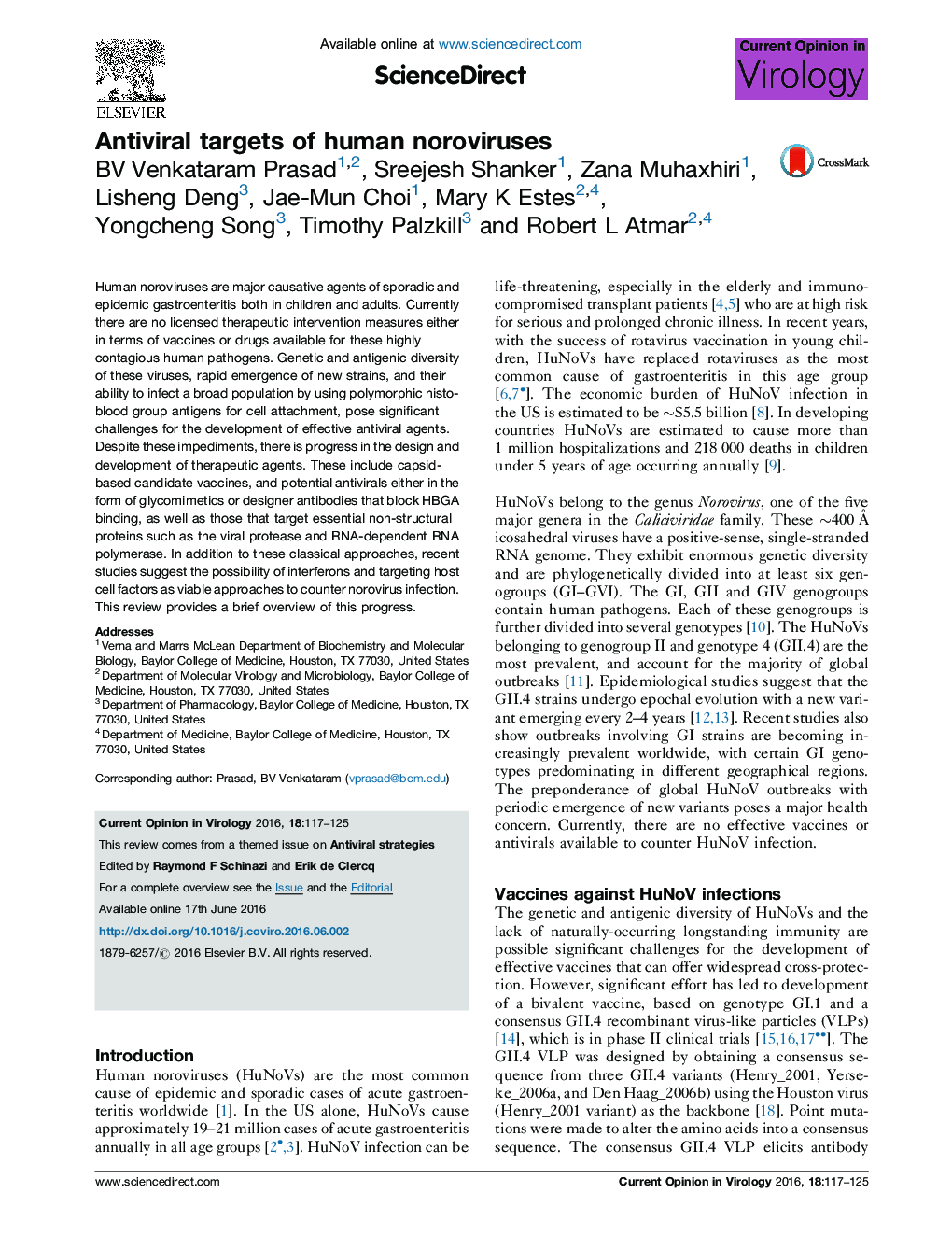| Article ID | Journal | Published Year | Pages | File Type |
|---|---|---|---|---|
| 5806563 | Current Opinion in Virology | 2016 | 9 Pages |
â¢Development of capsid-based vaccines and potential for multivalent vaccines.â¢Human monoclonal antibodies that block glycan binding as immunotherapeutic agents.â¢Viral protease and polymerase as targets for drug discovery.â¢Interferons and inhibitors of host cell factors as antivirals.
Human noroviruses are major causative agents of sporadic and epidemic gastroenteritis both in children and adults. Currently there are no licensed therapeutic intervention measures either in terms of vaccines or drugs available for these highly contagious human pathogens. Genetic and antigenic diversity of these viruses, rapid emergence of new strains, and their ability to infect a broad population by using polymorphic histo-blood group antigens for cell attachment, pose significant challenges for the development of effective antiviral agents. Despite these impediments, there is progress in the design and development of therapeutic agents. These include capsid-based candidate vaccines, and potential antivirals either in the form of glycomimetics or designer antibodies that block HBGA binding, as well as those that target essential non-structural proteins such as the viral protease and RNA-dependent RNA polymerase. In addition to these classical approaches, recent studies suggest the possibility of interferons and targeting host cell factors as viable approaches to counter norovirus infection. This review provides a brief overview of this progress.
